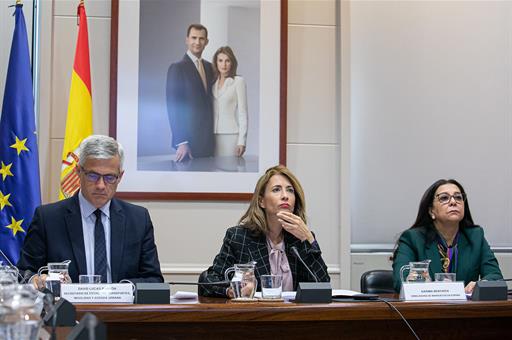Raquel Sánchez co-chairs the 43rd Joint Spanish-Moroccan Committee of the fixed link in the Strait of Gibraltar
News - 2023.4.10
The meetings of the Joint Committee have been convened following the High Level Meeting held in Rabat between Spain and Morocco on 1 and 2 February, at which the two countries reaffirmed their agreement to promote studies on the Fixed Link Project.
"This development is of tremendous political significance. Fourteen years after Tangiers in October 2009, we are giving impetus to the studies relating to this hugely relevant geostrategic project for our countries and for relations between Europe and Africa," the minister said at the beginning of the Joint Committee.
The joint actions carried out since 2009 by the Spanish company in charge of the studies, Secegsa, and its Moroccan counterpart, SNED, were also validated at the meeting.
"We are therefore beginning a new stage in the relaunch of the Fixed Link Project through the Strait of Gibraltar, which we began in 1981 with our two companies, Secegsa and SNED", concluded Raquel Sánchez.
Underwater gallery
The meeting coincides with the reactivation of Secegsa after several years without a significant budget allocation, and the commissioning of studies to analyse the feasibility of the intercontinental fixed link for telecommunications and energy transport. In this regard, €2.3 million of European Funds have been included in the Plan for Recovery, Transformation and Resilience (PRTR) to update the studies relating to the project.
As conclusions of the joint committee, both parties encourage the visibility of the project, agreeing to address the drafting of an overall strategy and work plan for the next three years, which may include, among other aspect, an analysis of the feasibility of constructing a reconnaissance gallery to identify geomechanical features. If built, it could be used for telecommunications.
Secegsa's corporate purpose is limited to carrying out studies, never works, which are normally carried out jointly with its Moroccan counterpart, SNED, both of which were created in 1981. Any future construction would involve a new bilateral agreement with Morocco, as foreseen in existing international agreements on this issue.
Non official translation





